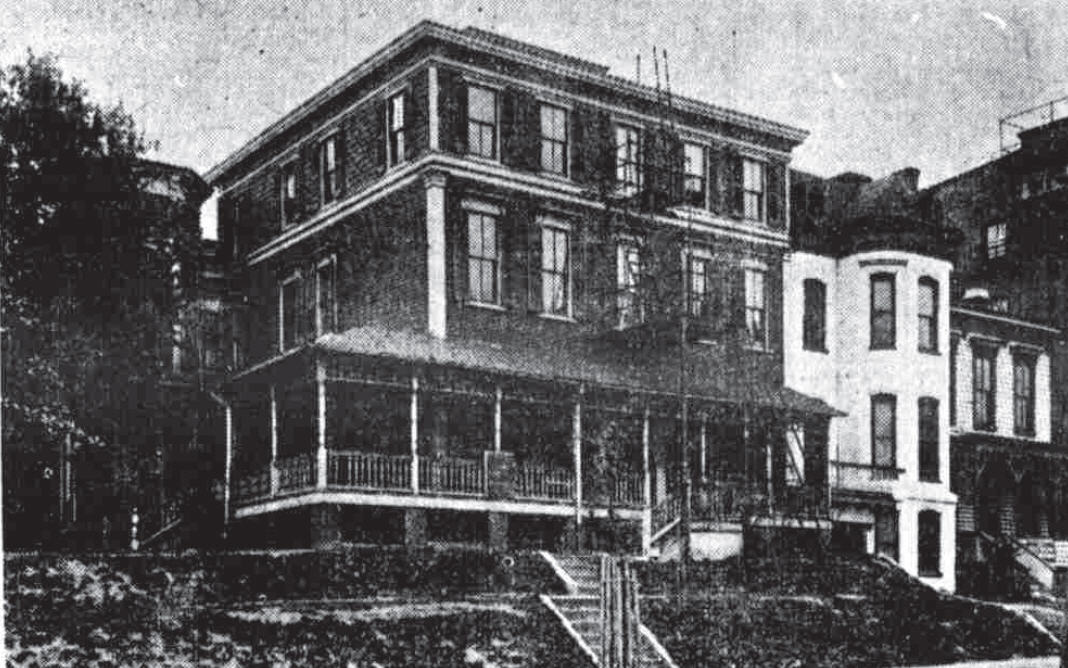Born in 1847 in West Stockbridge, Massachusetts, Jane Bancroft Robinson was a minister’s daughter who lived in a time when women seldom had opportunities for education. Jane’s unwavering determination, coupled with her mother’s encouragement, paved the way for her groundbreaking achievement of becoming the first woman to receive a Ph.D. degree from Syracuse University. Jane’s intellect and dedication also earned her two honorary PhDs and global recognition for her work.
In the autumn of 1886, Jane’s travels throughout Europe as a 39-year-old touring scholar changed the course of her life forever. While traveling, Jane witnessed the deaconess movement, where faith-driven women played a vital role in caring for the sick, poor, and vulnerable populations. She was confronted with the struggles of the poor and the faith of those who worked with them. All over Europe, she encountered well-trained deaconesses and learned about influential ones, such as Florence Nightingale, who served in hospitals, orphanages, elderly homes, and schools. Jane’s travels opened her eyes to the incredible impact deaconesses were having on communities around the world. She was inspired to make a difference in her own country and tackle the existing health care inequities.

Upon her return to the United States, Jane immediately advocated for the establishment of a deaconess movement in the Methodist Episcopal Church through the auspices of the Woman’s Home Missionary Society (later renamed United Methodist Women) in D.C. Jane’s travel experiences had a profound impact on her, inspiring her to write a book advocating for the need of deaconesses in America. Her progress to a position of leadership within the institution led to the establishment of the Lucy Webb Hayes National Training School for deaconesses and missionaries in 1890. The training school was designed to equip deaconesses and missionaries with the skills they needed to care for the spiritual, physical, and emotional needs of underserved communities. Jane shed light on how women, and deaconesses in particular, have always been the backbone of transforming medical care across the world. She was a force that inspired generations of women to take up the mantle of service and dedication in the name of faith.
In 1981, Jane married Judge George O. Robinson, an attorney and widower who had been a financial contributor to her work in the deaconess movement. Together they established two additional training schools for deaconesses, Orphanage’s, numerous deaconess homes, retirement homes for deaconesses, missionaries and Methodist ministers. Their work spanned the breath of the country.
Jane’s desire to make a positive impact on the health of the community led to her involvement in the founding of the Sibley Memorial Hospital in 1894. Influenced by her impassioned speeches and writings, businessman William J. Sibley made a generous donation of $10,000 to found the hospital, which was named in honor of his late wife. Jane was a lifelong champion of the role of faith and selfless service in caring for those left behind by society.

At the outset, Sibley Memorial Hospital trained nurses from the Lucy Webb Hayes National Training School for Deaconesses and Missionaries to aid the underprivileged in D.C. The hospital established itself as a reputable health care provider in D.C. and was eventually integrated into the Johns Hopkins Medical System in 2010. Around the same time as the integration, Robert L. Sloan, former president and CEO of the Sibley Memorial Hospital, Mr. Ted Miller, chairman of the board of the hospital, Bishop John School, and members of the board of trustees desired to preserve the historical commitment to underserved communities in D.C. Thus was established the Jane Bancroft Robinson Foundation (JBRF). The establishment of the foundation memorialized the dedicated work of Jane and the deaconesses of the Methodist Church. The Foundation’s mission was to provide grants to individuals or organizations that serve the neighborhoods East of the River in D.C., by focusing on social determinants of health and the prevention, diagnosis, and treatment of cancer.
To this day, Jane Bancroft Robinson’s work still inspires the JBRF team, which remains committed to tackling health, economic, and racial inequities in the D.C. community. Read more to find out how the Foundation has evolved since its founding.

